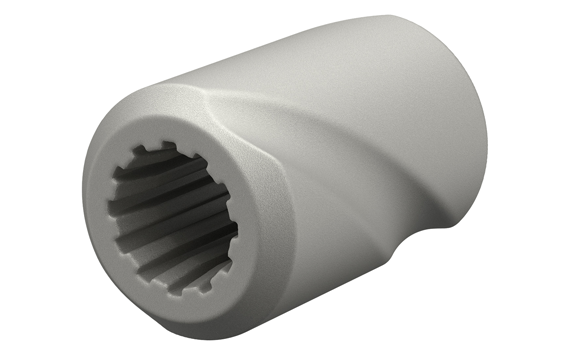[ad_1]
Desktop Metal, Inc., Boston, Massachusetts, USA, has qualified the use of D2 tool steel for the company’s Production System â„¢ platform. D2 tool steel is a versatile high carbon, high chromium tool steel characterized by its high hardness and compressive strength after heat treatment. The metal also offers high wear resistance properties, dimensional stability and corrosion resistance in the hardened state, a key advantage for conformal cooling applications.
Desktop Metal’s production system is based on the company’s Single Pass Jetting â„¢ (SPJ) technology, a form of Binder Jetting (BJT). D2 is used for a wide variety of cold work tools that require a combination of wear resistance and moderate toughness, such as punching and sizing tools, cutting and forming dies, punching and forming tools. shear cutters, gauges, burnishing tools and other wearing parts.
“Our materials science team is constantly working on the development of new materials and processes to make 3D printing accessible to all industries and applications,†said Jonah Myerberg, co-founder and CTO of Desktop Metal. “We are responding to the demand from our manufacturing and industrial customers for materials such as D2 tool steel which enable the production of critical forming and cutting tools, and in various other applications where high hardness is appreciated. . “
One such application is rotary cams, used in oil and gas or chemical processing applications to convert rotary motion into reciprocating linear motion in a machine. Typically, these parts require multiple manufacturing steps, starting with CNC machining and following the broaching of the spline on a separate machine. BJT enables the production of cams in a single build step, reducing both cost and part lead time, while supporting the production of many sizes of cams in one build to accommodate different machines, all without any fixings or tools required.
D2 tool steel is essential for this application due to its hardness and corrosion resistance, which ensures longer life as the cam mechanically interacts with a sliding pin. Additionally, since these components are often incorporated into machines operating in harsh environments, the corrosion resistance provided by D2 ensures that parts will perform as intended and will not deteriorate.
Desktop Metal’s material science team qualified and fully characterized D2 tool steel additively fabricated on production system technology in accordance with ASTM testing requirements.

[ad_2]
